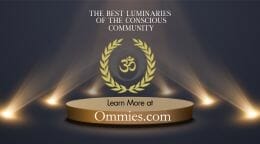Stuck in Stress?

By Mary Cook, M.A., R.A.S.
We can feel stress in our bodies. Common symptoms include strain, pain, tightness, constriction, aches, knots, churning, heaviness, unexplained drowsiness, hyperventilating, shortness of or holding our breath, loss of range of motion and sometimes even inability to move. It seems as if our body is hanging onto something and won’t let go. Conversely, common physical symptoms of relaxation are release, flexibility, softness, ease, full range of motion and a balance of inhalations and exhalations.
There are times when there is reason to be concerned and alert for danger. Often, however we carry tension in our bodies from the past and harbor it in case we need it in the future. The physiological symptoms of stress provide effective responses to real danger. If we maintain a chronic readiness for danger, we will perceive non-stressful situations as dangerous. Thus our bodies and minds turn potential mild mishaps into major catastrophes, momentary disappointments into permanent deprivations and positive work ethics into impossible perfectionism.
Sometimes our attitudes and beliefs promote stress. When our goals are to change others rather than ourselves, we experience stress. When we are not who we portray ourselves to be, or when outside validation is our only source of self-esteem, we will experience stress. When our expectations are significantly higher or lower than what is realistic for us we invite stress. If we overwork our bodies or minds without a balance of rest, relaxation, play and meditation along with healthy eating and exercise, we will pay a price. When we remain attached to problems rather than process, understanding and resolution, we are refusing to grow and will remain stuck in stress.
Not only do our muscles contract when we are stressed, our life also becomes smaller as we are unable to acknowledge, appreciate and invest in that which is not defined as stress. Carrying chronic or excessive tension depletes energy, exacerbates and creates health problems, narrows our choices and outlook in life and causes us to live reactively in response to real, imagined and potential dangers, rather than proactively in response to inner truth and spiritual principles.
Chronic stress symptoms indicate that we are stuck somewhere in our lives. We can ask ourselves questions to determine what our specific symptoms might represent. What part of our inner or external life is a strain or a pain and how do we change it? What feelings do we keep bottled up inside our bodies and how can we safely experience and express them? To what do we feel ambivalent and how can we make a decision to move forward? What are we avoiding that needs releasing? What are we afraid to say that needs to be said? What do we want that’s difficult to ask for? In what ways are we punitive or witholding? What are our dreams and longings and how can we support ourselves to move toward them?
It’s more difficult for our bodies to lie to us than our minds. For this reason, examining psychosomatic symptoms of stress is a valuable tool. In addition, taking cues from the body’s natural responses to relaxation can direct our improvements. Therapeutic massages often unblock emotional pain and memories, allowing us an opportunity to begin healing in these areas. When we take a break from working on a problem and let ourselves relax, solutions are more likely to occur to us. We can explore what triggers hope, positive self-esteem, ease and balance, and allows us to view a larger perspective and more options. These are positive triggers that we need in our lives on a daily basis.
Just as our bodies need to balance inhalations and exhalations, our lives need a balance between receiving and giving. When we seek only to take from others and our environment, we are stressed. When we fail to provide for our own welfare first and give only to others, we are stressed. People, places, behaviors and emotions that reinforce stress need to be identified and released. Relinquishing chronic patterns of stress requires mindfulness, insight, time and often assistance from others. And this then gives us greater wisdom, serenity, happiness, health and fulfillment.
Click HERE to Connect with your Daily Horoscope!
About the Author
Mary Cook is the author of “Grace Lost and Found: From Addictions and Compulsions to Satisfaction and Serenity”, available from Amazon.com, etc. http://www.amazon.com/Grace-Lost-Found-Compulsions-Satisfaction/dp/1573244686/ref=sr_1_1?ie=UTF8&s=books&qid=1257717933&sr=1-1 Mary has 37 years of clinical practice and 29 years of university teaching experience. She is available for telephone and office counseling, guided meditation, and speaking engagements. Connect with her at: WWW.MARYCOOKMA.COM
Her Facebook page is: https://www.facebook.com/pages/Mary-Cook/166903606690909
OMTimes Magazine is one of the leading on-line content providers of positivity, wellness and personal empowerment. OMTimes Magazine - Co-Creating a More Conscious Reality









